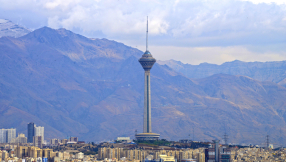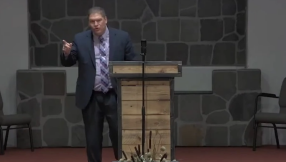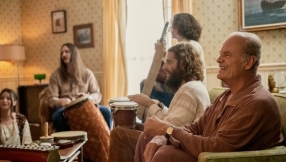The archbishop of Wales has rejected the idea that he is 'left-wing' after suggesting that people pay 'more tax' to fund better public services, saying: 'I don't think there is anything left-wing about justice, equity and compassion.'
In a wide-ranging interview with Christian Today ahead of Easter, John Davies, who was elected archbishop last September, said: 'I'm apolitical as far as parties are concerned, but I'm rooted in the gospel. What's intriguing is that people of all political persuasions are active Christians and interpret the gospel in different ways.'
The archbishop, who is a trustee of the charity Christian Aid, is gaining a reputation for speaking out fearlessly on social justice issues and described being criticised in letters claiming he is a 'frustrated left-wing politician' for backing ongoing overseas aid and as 'un-Christian' for saying people must pay more in tax if they want better services.
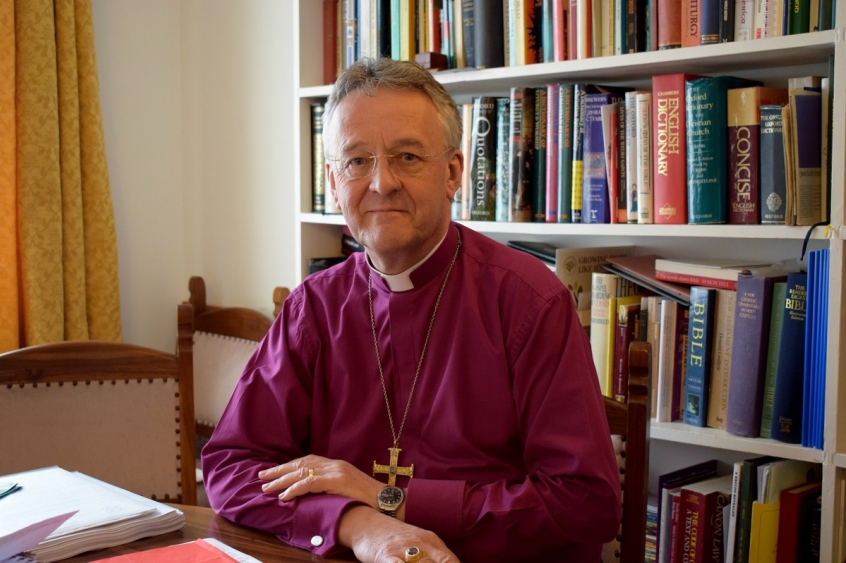
On the latter point, Davies stressed he is saying that public spending must be audited, monitored and efficient but maintained that 'ultimately, the money has got to come from ourselves'.
'Ultimately, the source of money is you and me,' he said. 'And if we can be satisfied that expenditure is properly controlled and efficiency is properly measured – satisfied you're getting bang for your buck – then there is only one ultimate answer: people must pay for it.'
He continued: 'I know we are taxed very heavily but in demanding more and better services, the public sometimes has to recognise that they are the source that has to pay for it.'
Davies recalled being part of a demonstration outside the Welsh government assembly some years ago as chair of the Housing Justice team. 'We were all there to call for better support for social housing,' he said. 'In my contribution I asked people to put their hands up if they believed in the need for more for social housing; everyone put their hands up – so I asked where is the money going to come from. Ultimately, it's got to come from ourselves.'
On overseas aid, Davies says that while 'there is always the anti-aid agenda' he is 'personally very proud that the UK government has maintained its commitment to overseas aid, and frankly extremely grateful'.
He recognises that the so-called Oxfam scandal 'has done few favours to the charitable sector' but he adds that 'I think it is a fundamental part of Christian life – that you seek to bring the resurrection to the despairing'.
He said a recent letter 'painted me as a frustrated left wing politician and [said that] what I ought to be talking about is that Christ Jesus died to save sinners. I responded that Jesus had much more to say about how we deal with our material possessions, money and so on – in fact more to say about that directly than about love. It was rather naive to preach at people in that sense.'
He joked that, 'I must remember now, next time I visit a food bank, to say Christ Jesus died to save sinners – that will cheer them up no end.'
Instead, he says in a favourite phrase, 'we must be agents of the resurrection'.
Which brings us to Easter.
Archbishop Davies will be preaching at Brecon Cathedral on Easter Day this Sunday, and has said in his Easter message: 'Of course, there's absolutely nothing wrong with feeling better in ourselves and about ourselves. But in doing so, might we also start to feel stronger about our own abilities, to bring benefit to others through the contributions we make to our local communities and, perhaps, to needy people far beyond them?'
He says that his sermon will discuss the origins of the faith – and the initial belief that the resurrection story was 'fake news'.
'The Gospel reading on Sunday at the cathedral will be the end of Mark where the women have gone to the tomb and they come back and say nothing to anybody. If you think of the Luke account, the same thing happens but they tell the disciples – who thought it was an idle tale. They thought it was fake news – and that is resonant in today's culture.
'This is a faith rooted in ordinary people: perplexed, doubting, unreliable.
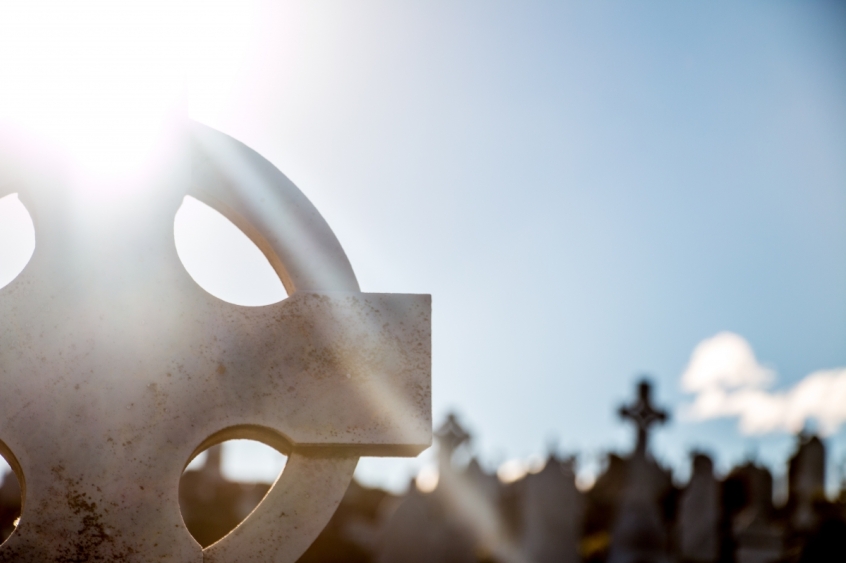
'If you wanted to kick off a movement to change the world, you'd have strategists, financiers and so on, whereas Jesus had fisherman, traitors, thieves and militant nationalists.
'It began with very ordinary people and frankly people who didn't always believe what they were told...[But] what follows is conviction and Pentecost – the disciples realised not only did they have something to say but the world had something worth listening to.'
He says: 'I hope that ordinary Christians and also people outside churches grasp something of this holy event that continues to unfold wherever there is human need.'
Asked about 'the practical reality of the resurrection' and the empty tomb, a difficult concept for the modern mind to grasp, Davies is thoughtful. 'I don't think any of us actually knows, quite frankly. What I believe is that something radical happened that changed the lives of the people who were there at the time.'
He cites the late bishop of Durham, David Jenkins, who said the resurrection was 'not just a conjuring trick with bones'.
And Davies says: 'It is about something far more than a dead body coming back to life – it is the complete renewal of the being of Christ.
'If you read John, you've almost got a complete contradiction – doubting Thomas touching and feeling, and then in the next account you have Jesus appearing to come through locked doors and barred windows. What the evangelist is trying to say is that try as you might, you can't shut out the risen Christ. I don't think anybody can tell you what happened when it comes to empty tombs.
'Physical bodily resurrection is terribly hard for people to think about today – resurrection was a much more sociologically rooted concept back in days when Christ was on earth. But my take is that whatever happened, we are here, the church exists, the faith flourished.
'Fundamentally the stories all add up to same thing, which is, Christ is Risen.'
Reflecting finally on the resurrection story, Davies says that 'the church today must have something worth listening to – it has to be courageous and have something to say.'
To be fair to Davies, despite the hostile letters, he cannot himself be accused of being afraid of speaking out in the light of that Easter message.
And as for whether he is 'left-wing', Davies reflects that he is in good company: 'I'm sure they said the same about Jesus.'











